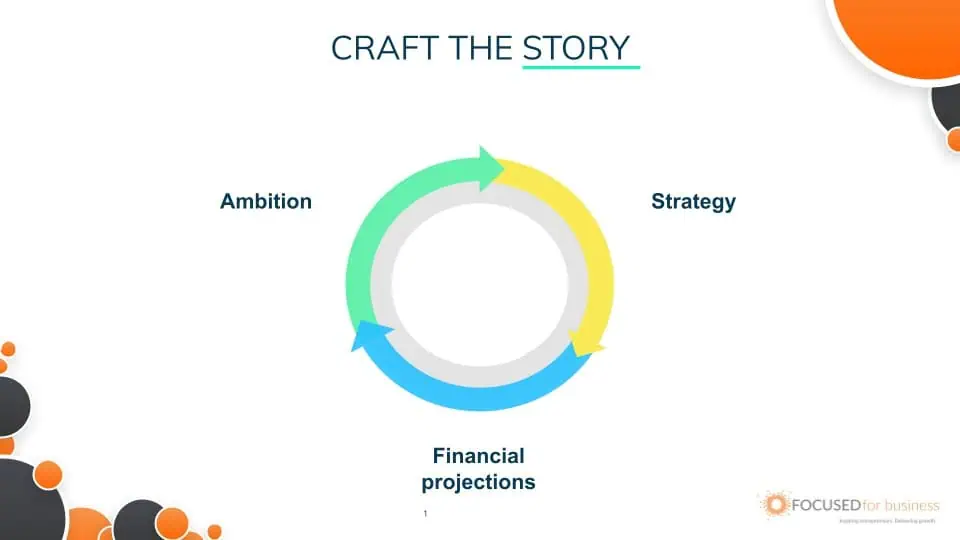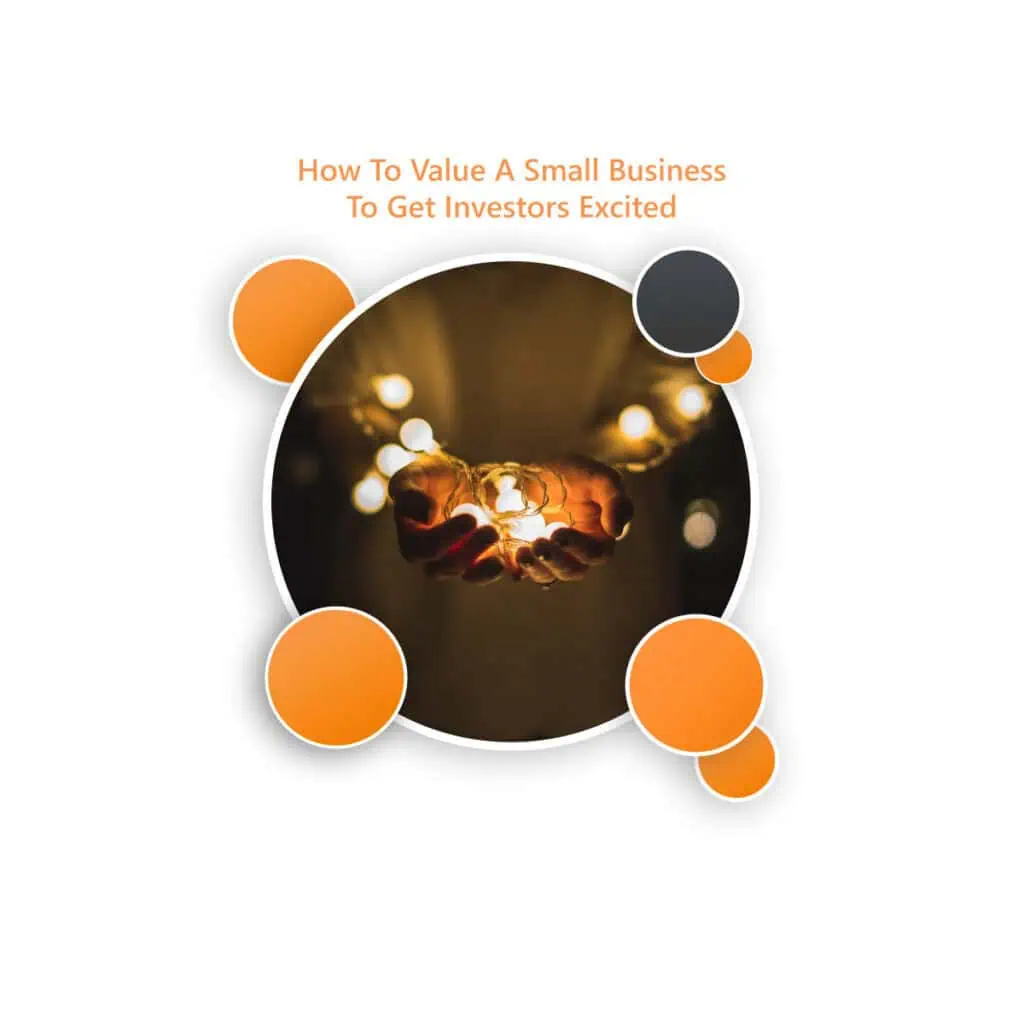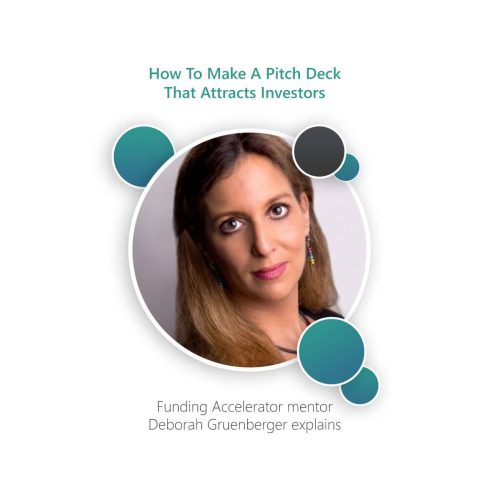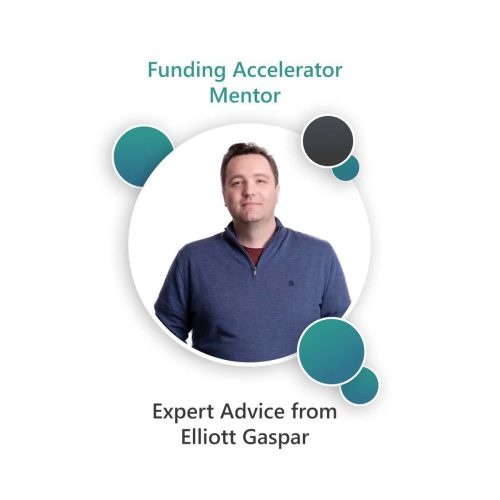Raising investment can be challenging. The preparation, pitching, and negotiation is a time-consuming process, and can distract founders from their primary goal: Growing their business.
But securing funding is often what companies need to take their businesses to the next level, and for investors to commit their funds, the valuation of the company needs to be right.
Striking the right balance that shows the potential of the business, but not alienating investors with an inflated valuation before you’ve had a chance to pitch to them is key to getting investors to commit. For that it’s crucial to understand the key strategies involved in how to value a small business so that you generate excitement with investors and secure a deal.
Here we take you through a tried and trusted 3-step process that we use on Funding Accelerator so you understand how to value a small business.
Understanding How to Value a Small Business
Simply put, a valuation is an attempt to determine the right “price” for your company – It will set the price an investor pays for each share when investing, and it should reflect the appropriate return they’re likely to receive in the future.
If you are working out how to value a small business, there are two key variables you should consider:
1. Risk: How risky the venture is (the earlier the venture the riskier it is) and the likelihood of the business achieving its projections
2. Return: The potential upside or growth of the business and their investment
To achieve the highest valuation for your company, there are two main strategies you can adopt:
1. Increase the potential of the company
In practice this means projecting more traction and could mean:
- Expanding your customer base
- Entering new geographical markets
- Developing additional revenue streams e.g. with new products or services
2. Reduce the risk for investors
Show that you have made good progress by:
- Demonstrating traction and market validation
- Showing consistent revenue growth to justify your future projections
- Build a strong team with relevant experience and skills
A solid valuation is based on what your company has achieved so far, as well as its future potential and the returns that can bring. To help you create a compelling story for investors, we recommend following this sequence:

Image courtesy of Equidam
First off, start by mapping out your ambitions and be ambitious! Most founders have started a company to make an impact and that this should be communicated to investors. From there you need to develop a clear strategy that puts the necessary building blocks in place to achieve your ambitions. This strategy should then be translated into financial projections. In your financial projections you should clearly demonstrate that your ambition and goals are achievable and worthy of investment. Doing this will create a solid story to calculate a valuation from and also allow an investor to see the likely returns on their investment.
Valuation Methods
When it comes to how to value a small business, there are various different methods available, ranging from general comparisons to more specific approaches.
General valuation methods are quick to do, and examples include:
- Comparisons to other startups (not necessarily in the same sector) via general knowledge or researching online via sites like Cruchbase.
- The “Multiple method” which builds a valuation based on a multiple of revenue or profit
These generic valuation methods tend to give you an ‘average’, rather than a valuation that’s specific to your own startup. A more specific valuation method is unique to your business, but they are also more involved to calculate. Examples of these include:
- Asset-based valuation
- Discounted cash flow analysis
It also could be that your business is too early to use these more ‘specific’ types of valuation methods, many start-ups are pre-revenue so it’s impossible to use a method like Discounted cash flow for example. To account for that, at Focused for Business we recommend a three-step approach to valuation that combines multiple valuation methods and provides a comprehensive way so you know how to value a small business, and understand company’s worth, even if you are early-stage and pre-revenue.
Step 1: Establish a Valuation Range
To start with, we recommend establishing a valuation range for your business, using different valuation methods which take into account the current stage of your business, and its anticipated growth.
At Focused for Business we like to a tool called Equidam, which asks 10 specific questions and provides a valuation range based on various valuation methods (Multiple method, VC method, Scorecard, and Asset-based valuation).
Here are our tips for using a valuation tool like Equidam:
- For pre-revenue companies, reduce the weighting of discounted cash flow method, but don’t completely disregard any valuation method; it’s important to use a combination of methods but adjust ‘weightings’ as appropriate (you can do this easily if you’re using Equidam).
- If you are targeting angel investors rather than VCs, place less weight on the VC valuation method.
- Consider the problem you’re solving rather than how you’re solving it when selecting your industry sector. The industry sector will have an impact on your valuation range, so it’s important to be true to what industry you’re focused on.
Whilst tools like Equidam are helpful in providing you with a valuation range, they don’t compare you to others in your sector or account for current market conditions. Both of these are super important in determining a realistic valuation for your startup, and for you to know how to value your small business.
Step 2: Compare Your Valuation Range to Other Companies in Your Sector
As we’ve mentioned, valuations are influenced by how much you’ve de-risked the opportunity for investors. Generally speaking, the more traction you can demonstrate means the less perceived risk for an investor, and so can result in a higher valuation of your business.
To strengthen you startup valuation, and understand how to value a small business, we recommend conducting a benchmark assessment that will give you insight and help you:
- Show how much progress you’ve made compared to peers
- Compare your valuation to similar companies’ in your sector
- Ensure your valuation aligns with the expectations of investors
By doing a benchmark assessment, you can really understand if you’re ahead or behind your competitors and having that knowledge means you can then adjust your valuation accordingly. You need to make sure that your valuation is in the right ballpark, and to make sure your investment opportunity is competitive with the other opportunities that are passing investors desks daily.
Step 3: Ground Your Valuation in Current Market Conditions
It’s good to know how much peers have raised and at what valuation, but a lot can happen in a few years. Markets and valuations can fluctuate considerably, take Q1 2023 for example where valuations were only about a third of what they were in Q3 2021, so it’s important to make your valuation relevant and reflective of today, to make it attractive to investors. To do this, we recommend:
- Researching current valuations, ideally from the last 6 months, as opposed to those just from last year, or couple of years
- Find and reference recent funding rounds in your sector and stage (within the last 6-12 months)
- Give specific examples of companies that have recently raised in your sector to build investors’ confidence in your valuation.
Finding this kind of data can be challenging and very time consuming. To help, we give startups who are part of our Funding Accelerator programme free access to MarktoMarket, which is a corporate finance database that offers valuable insights into recent funding rounds, where you can slice by sector to really drill down to and find the insights you need to justify your valuation and understand how to value your small business.
By following these three steps you should be able to land in a realistic valuation for your business.
The benefits of using this 3-step approach is that it shows that you’ve done your homework to investors, helping to build their confidence in you as a founder. The power of a data-informed valuation grounded in reality, means that you have a stronger negotiating position with investors, as you can justify with real examples why you have set the valuation you have.
Making your investment opportunity attractive to investors is all about communicating the potential returns from business, de-risking the opportunity, building confidence in you as a founder and your team, and offering them an attractive “deal”. Doing your research and using this 3-step approach will demonstrate a methodical approach, and build confidence in you as a founder as well as the valuation you’re communicating, and it will go a long way in helping you to seal the deal and receiving commitments from investors.
Want to understand what 3 things you should be putting in your financial projections to make it more attractive to potential investors? Read about them here.
Feel confident you understand how to value a small business, and ready to start building a valuation for your business? Answer 10 short questions, and have your valuation range emailed to you today. Use our valuation calculator
- Founders’ Negotiation Tactics: How To Secure The Best Startup Valuation - May 12, 2025
- How To Master Your Sales Lifecycle: Close Deals Faster And Smarter - April 30, 2025
- How To Maximise Your Business Valuation And Attract Investors - April 7, 2025





















